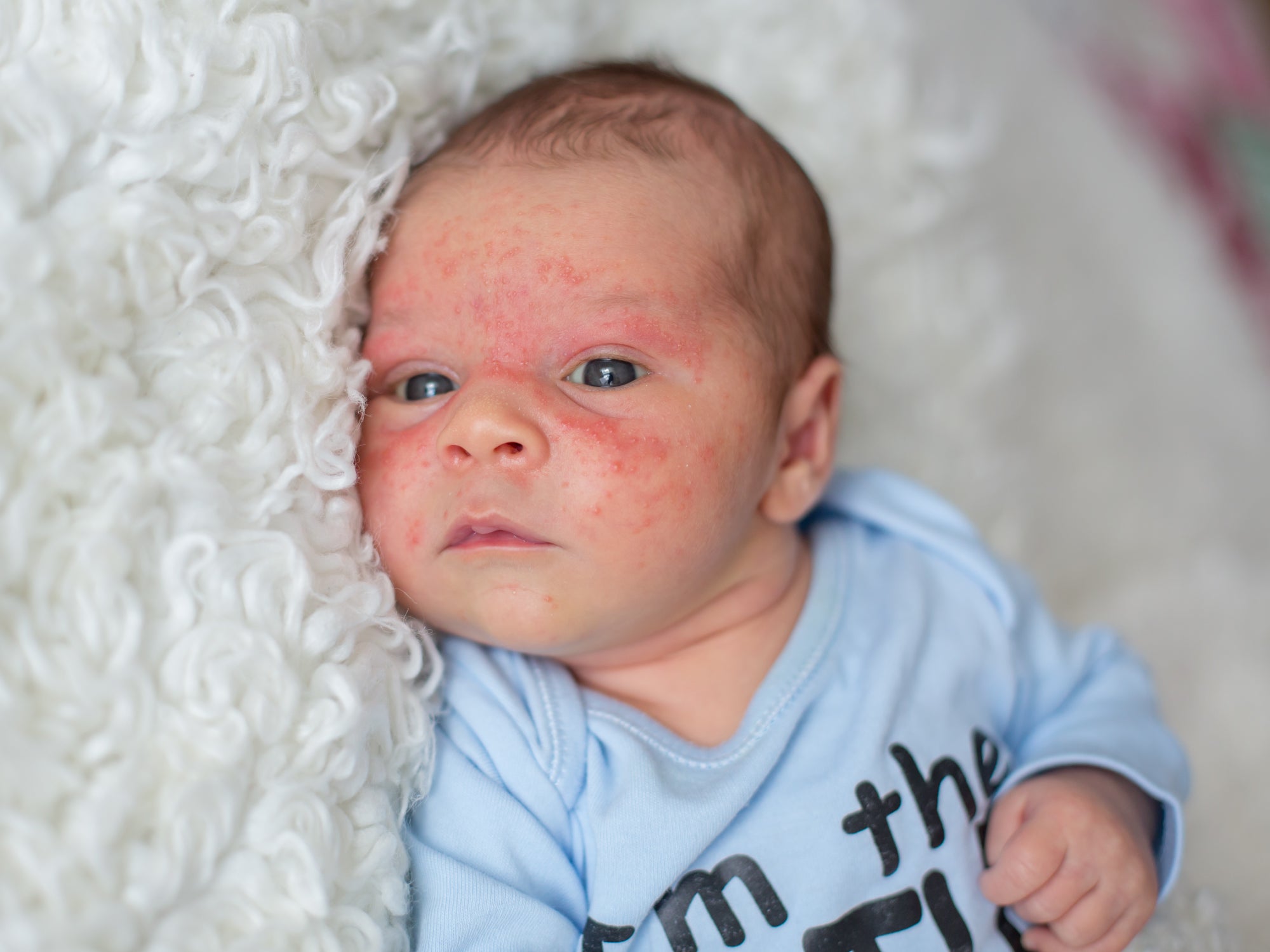Rashes, pimples and spots are very common in little babies, and sometimes very different conditions can look pretty similar. So how can you tell what’s what?
The first thing to say is that if you’re worried about a baby, especially under one year old, you should always talk to a doctor. No one is going to think you’re wasting their time, because little babies need careful attention when they’re so young. Any rash accompanied by fever should be checked out as soon as possible, but you can consult your doctor about any skin issue, even when unexplained spots appear without a fever.
About 20% of newborns develop neonatal acne, which appears on the face, chest, back and neck, often when the baby is about two weeks old, and looks like little pimples and spots. If it persists, or starts after the baby is six weeks old, it’s called infantile acne. It can last for a few weeks, months or even years.
Childhood eczema is also very common in babies and young children, and can also manifest as spots and pimples, but is much more likely to be accompanied by itchiness, sore patches and inflammation. It’s an inflammatory condition associated with a fragile skin barrier, resulting in dry or cracked skin.
If your baby develops eczema, they will need to have emollients applied regularly to keep the skin hydrated and nourished, and you’ll have to identify the triggers that cause a flare-up, whether that’s pet hair, dust mites, detergent, food, soap or other toiletries.
A simple comparison between infantile acne & eczema
Infantile acne
Childhood eczema
Recommended products:
Infantile acne should eventually clear up on its own. We don’t recommend any particular products to ‘treat’ it, except not to use grown-up acne products, don't pick the spots, and to stick to very gentle, soap-free, scent-free skincare.
To help manage flare ups of childhood eczema, first identify triggers (whether in diet, environment, toiletries, or detergents) and then find an unfragranced emollient for frequent application. For more information about managing eczema, see Top Tips for Managing Childhood Eczema in our Info Hub.
Skin Salvation with beeswax, hemp & calendula (from £7.99 for 30ml)
Balmonds Daily Moisturising Cream with shea, hemp & calendula (from £13.99 for 100ml)
Balmonds Natural Shampoo & Body Wash with nettle & calendula (£19 for 200ml)

